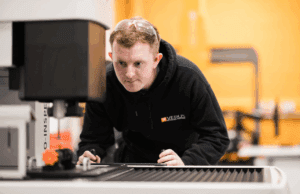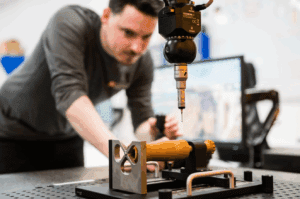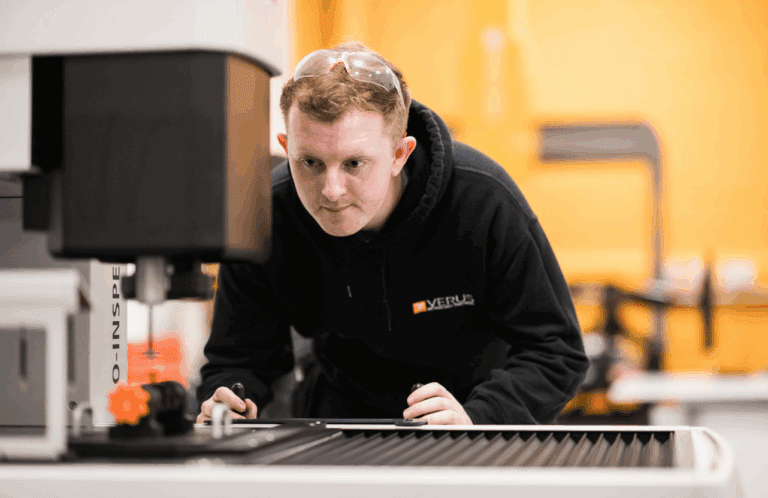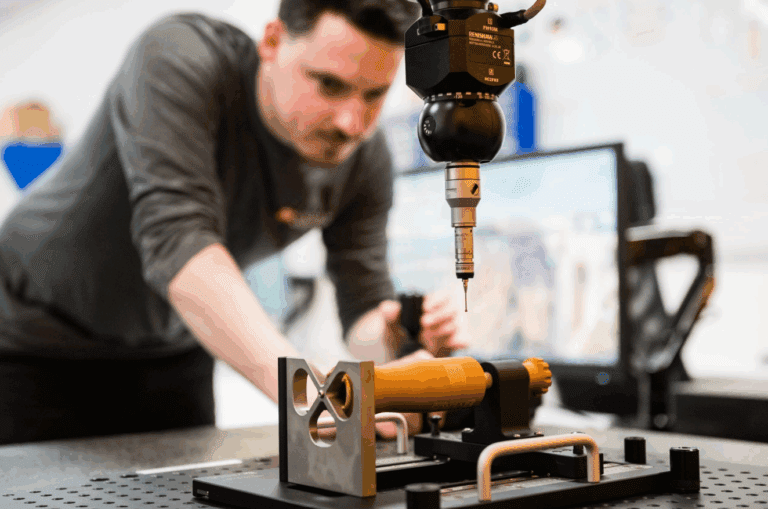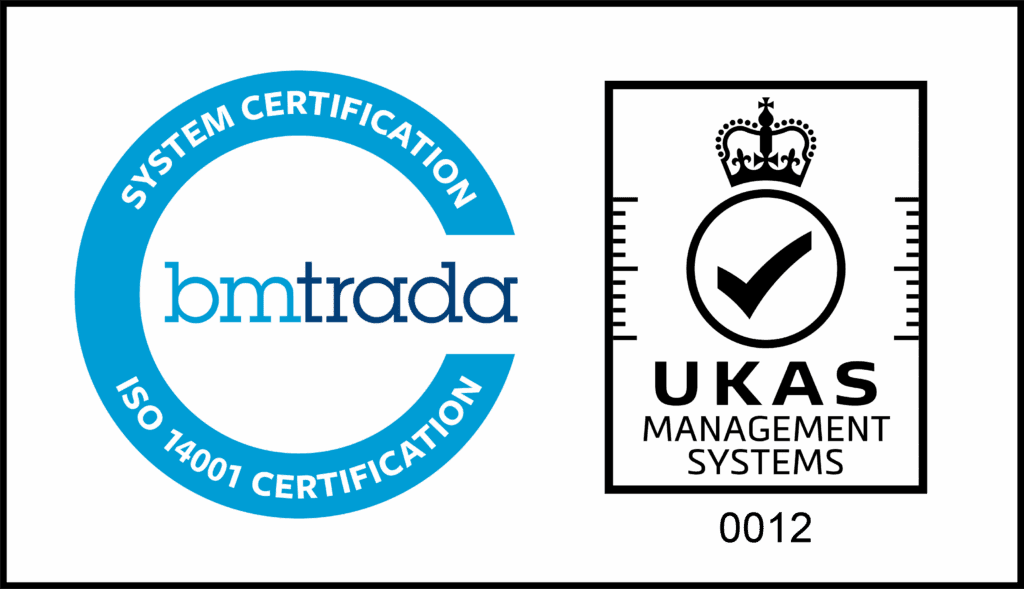The Foundation of Precision: Understanding Metrology Laboratories
Metrology laboratories are pivotal in the realm of quality control and manufacturing, acting as the cornerstone for precision and accuracy across numerous industries. These advanced facilities are equipped to perform rigorous measurement and inspection tasks, ensuring that every component produced aligns with stringent industry standards and regulatory requirements. In industries like MedTech, Pharmaceutical, Personal Care, FMCG, and Aerospace, where the margin for error is minimal, the role of a metrology lab becomes even more critical.
By leveraging cutting-edge technology and sophisticated methodologies, metrology labs help manufacturers maintain the highest levels of quality and consistency. From ensuring the dimensional accuracy of intricate medical devices to verifying the uniformity of components used in aerospace applications, these labs provide the essential data that drives decision-making throughout the production process. With their comprehensive capabilities, they play a crucial role in minimising risks, reducing waste, and preventing costly recalls.
Understanding the full capabilities and impact of a metrology laboratory begins with recognising its essential functions and the advanced equipment it houses. This exploration will provide insights into how these labs maintain precision and reliability, supporting industries that demand the highest standards.
Core Capabilities of Advanced Metrology Laboratories
Advanced metrology laboratories are equipped with a broad array of tools and technologies designed to measure and inspect components with the utmost precision. These capabilities are anchored in sophisticated equipment like Coordinate Measuring Machines (CMMs), Vision Systems, and Optical Gauging Products (OGP) systems, which provide high-resolution measurements and detailed data analyses for a variety of applications.
- Advanced Equipment and Technologies
At the heart of any advanced metrology lab are its measurement systems. CMMs, for instance, are critical for dimensional inspection, providing three-dimensional measurements with exceptional accuracy. Vision systems, which utilise optical technologies, offer non-contact measurement capabilities ideal for fragile or complex parts. Multi-sensor systems, such as the Zeiss O-Inspect or OGP Smartscope, combine tactile and optical measuring capabilities, enabling a versatile approach to inspecting different types of components. These systems ensure that labs can handle everything from ultra-small medical devices to large aerospace components. - The Role of Software in Enhancing Measurement Accuracy
The accuracy of measurements in a metrology lab is also heavily dependent on the software used to analyse data. Metrology software, such as PC-DMIS, MCOSMOS, and MODUS, provides powerful tools for programming, automating measurement routines, and interpreting results. These platforms support complex measurements and automate repetitive tasks, reducing the risk of human error while increasing throughput. By integrating software with measurement hardware, advanced labs can deliver precise, repeatable, and reproducible results, which are critical in industries where even the smallest deviations can have significant consequences. - Comprehensive Service Offerings
Modern metrology laboratories offer a wide range of services tailored to meet the specific needs of different industries. Dimensional inspection services, such as Initial Sample Inspection Reports (ISIR) and First Article Inspection Reports (FAIR), ensure that parts meet design specifications before they enter full-scale production. Gage Repeatability and Reproducibility (Gage R&R) studies assess the reliability of measurement systems, helping manufacturers understand the sources of variation in their processes. These services help maintain compliance with stringent industry regulations and standards, reducing the risk of defects and enhancing product quality.
By combining state-of-the-art equipment, advanced software, and a comprehensive suite of services, metrology laboratories provide the foundational support needed for high-precision manufacturing. Their capabilities ensure that manufacturers can confidently produce components that meet the most rigorous standards, safeguarding both quality and compliance.
Ensuring Accuracy with Calibration and Certification
In the high-stakes environment of modern manufacturing, maintaining the accuracy and reliability of measurement data is paramount. This is where the calibration and certification processes of metrology laboratories come into play. Calibration involves comparing the measurements of an instrument to a recognised standard to identify any deviations or errors, while certification confirms that the equipment meets international quality and measurement standards.
- The Critical Role of ISO 17025 Certification
ISO 17025 is the global standard for testing and calibration laboratories. Achieving this certification is a mark of excellence, indicating that a metrology lab has the technical competence to produce accurate and reliable results consistently. It involves rigorous testing and validation processes, ensuring that all equipment is functioning optimally and delivering precise measurements. For manufacturers, partnering with an ISO 17025-certified lab means they can trust the data provided, which is crucial for maintaining quality control and ensuring regulatory compliance. - The Importance of Regular Calibration
Regular calibration of measurement instruments is essential to ensure that they remain accurate over time. Factors such as environmental conditions, usage frequency, and equipment age can cause measurement drift, leading to inaccurate data. Metrology laboratories conduct regular calibrations using traceable standards, often within temperature-controlled environments to mitigate any external influences. This process helps to maintain the reliability and traceability of measurements, providing manufacturers with confidence that their inspection processes are sound. - Case Studies: Calibration in Action
Calibration is not just a routine exercise; it has a direct impact on the quality and compliance of the products being inspected. For instance, in the aerospace industry, where components must meet incredibly tight tolerances, improper calibration can result in parts that do not fit correctly or fail under stress. Similarly, in the MedTech sector, where patient safety is paramount, uncalibrated equipment can lead to non-compliance with FDA or EU regulations, risking product recalls or even patient harm.
Regular calibration and certification are vital for preventing such issues. For example, a medical device manufacturer using calibrated CMMs for inspecting implant components can be assured of the dimensional accuracy required for patient safety and regulatory compliance. This precision not only prevents costly recalls and ensures safety but also fosters trust with regulatory bodies and clients alike.
- Reducing Errors and Maintaining Quality Standards
Calibration helps minimise measurement errors, which is crucial for industries where quality cannot be compromised. Errors in measurement can lead to significant financial losses, whether through production downtime, waste, or non-compliance penalties. By ensuring that all equipment is properly calibrated, metrology laboratories help manufacturers maintain consistent quality, optimise production processes, and achieve greater operational efficiency.
In essence, calibration and certification practices are the bedrock of quality assurance in any advanced metrology laboratory. They provide the confidence that every measurement taken is accurate, every process is optimised, and every product meets the required standards.
The Impact of Automation in Modern Metrology Labs
Automation is transforming the landscape of metrology, bringing unprecedented levels of efficiency, consistency, and accuracy to measurement processes. As manufacturing industries evolve, the need for faster, more reliable inspection methods becomes increasingly important. Automated systems in metrology labs meet this demand by minimising human intervention, reducing errors, and optimising throughput.
- Reducing Human Error and Increasing Throughput
One of the most significant benefits of automation in metrology is the reduction of human error. Manual measurements, no matter how carefully performed, are subject to variability. Automated systems, such as Coordinate Measuring Machines (CMMs) equipped with robotic arms, ensure consistent and repeatable measurements by following pre-programmed routines with minimal deviation. This reliability is crucial for industries like MedTech, where precision can directly impact patient safety, and Aerospace, where stringent compliance is necessary.
- Automation also dramatically improves throughput by enabling continuous, high-speed measurements. Systems like the Anvil Automated Measurement System (AMS) can handle bulk inspections with minimal human oversight, significantly increasing the volume of components that can be measured in a given time frame. This speed is vital in high-volume production environments, such as those in the FMCG and Personal Care industries, where maintaining pace without compromising quality is essential.
- Leveraging AI and Machine Learning for Smarter Metrology
The integration of Artificial Intelligence (AI) and Machine Learning (ML) into metrology processes is paving the way for smarter, more adaptive measurement systems. AI-driven software can analyse large datasets generated from inspections to identify patterns, detect anomalies, and even predict potential failures. This predictive capability allows for proactive maintenance and adjustments, reducing downtime and preventing defects before they occur.
- Machine Learning algorithms can also optimise measurement routines by learning from past data, thereby improving efficiency and accuracy over time. For example, an AI-powered CMM might adjust its measurement path based on the specific characteristics of each component, reducing cycle times while maintaining high accuracy. In industries where component variability is high, such as Aerospace and MedTech, this adaptability can lead to significant cost savings and process improvements.
- Enhancing Quality Control with Automated Inspection Systems
Automated inspection systems play a crucial role in maintaining quality control standards across various industries. Vision systems, which use advanced cameras and image processing software, can perform non-contact inspections at high speed, detecting surface defects, dimensional inaccuracies, or contamination that might be missed by traditional methods. These systems are particularly useful in environments where products are delicate or complex, such as in the Pharmaceutical or MedTech sectors.
- For instance, automated vision systems can inspect the surface of a surgical instrument for micro-defects invisible to the naked eye, ensuring that every piece meets stringent quality standards. In the FMCG sector, automated inspections can ensure the consistency of packaging and labelling, reducing the risk of recalls due to mislabelling or packaging errors.
- Reducing Costs and Increasing ROI with Automation
Automation not only enhances measurement accuracy and consistency but also significantly reduces costs. Automated systems lower labour costs and reduce the risk of costly errors by minimising human involvement. Additionally, automated systems improve the return on investment (ROI) by increasing the speed and efficiency of inspection processes, allowing manufacturers to produce more without sacrificing quality.
- In many cases, the initial investment in automated metrology equipment is quickly offset by the savings from reduced waste, fewer recalls, and lower operational costs. For example, a pharmaceutical company that adopts automated inspection systems may see a dramatic reduction in product recalls due to improved consistency and compliance with regulatory standards.
- Overall, the move towards automation in metrology labs reflects a broader trend in manufacturing towards greater efficiency, precision, and reliability. As these technologies continue to evolve, they will further enhance the ability of manufacturers to meet the demanding standards of modern industries.
Best Practices for Metrology in Key Industries
Different industries face unique challenges when it comes to metrology, and advanced metrology laboratories play a pivotal role in addressing these challenges with tailored solutions. From the MedTech and Pharmaceutical sectors, where precision can be a matter of life and death, to the Aerospace industry, where safety and compliance are paramount, each field requires specific metrology practices to maintain quality and performance standards.
- MedTech and Pharmaceutical Industries: Ensuring Precision and Compliance
In the MedTech and Pharmaceutical industries, accuracy in measurement is critical. Components used in medical devices, such as implants or diagnostic equipment, often have complex geometries and stringent dimensional tolerances that must be met to ensure patient safety and regulatory compliance. For example, inspection of an orthopaedic implant requires precise measurement to confirm that every dimension matches the design specification, as even the slightest deviation can affect its function and longevity.
- Advanced metrology labs address these challenges by utilising non-contact measurement systems, such as optical and laser scanners, that can accurately measure complex shapes without risking damage to the component. Moreover, these labs offer specialised services like Gage R&R studies to validate the measurement systems used, ensuring that they are repeatable and reproducible, which is essential for FDA and EU compliance.
- Aerospace: Meeting the Demands of Safety and Reliability
The Aerospace industry relies heavily on advanced metrology to ensure that every component of an aircraft meets exacting standards. The failure of a single part, even a tiny fastener, can have catastrophic consequences. Therefore, metrology laboratories working with aerospace manufacturers must provide highly accurate measurements and data validation.
- Metrology labs achieve this through the use of multi-sensor systems that combine tactile and non-contact measurements to inspect both the surface and internal geometries of components. For instance, turbine blades require precise measurement to ensure that they can withstand extreme conditions. Labs equipped with advanced Coordinate Measuring Machines (CMMs) and Computed Tomography (CT) scanners offer the capability to inspect both external and internal features, ensuring comprehensive quality control.
- Personal Care and FMCG: Ensuring Consistency and Efficiency
In the Personal Care and FMCG sectors, consistency and speed are crucial. Products must not only meet quality standards but also be produced in large volumes to meet market demands. Metrology laboratories support these industries by providing fast, automated inspection processes that ensure every product meets specifications without slowing down production.
- For example, automated vision systems can inspect packaging lines at high speed, verifying that each unit is correctly labelled and sealed, which helps prevent costly recalls due to packaging errors. Similarly, automated CMMs can quickly measure large batches of products, ensuring consistency in dimensions and quality, reducing waste, and increasing throughput.
- Customisation for Unique Challenges in Each Industry
One of the key advantages of advanced metrology laboratories is their ability to offer customised solutions tailored to the specific needs of each industry. For instance, in the MedTech sector, labs might develop fixtures specifically designed to hold delicate or complex-shaped components securely during inspection, minimising the risk of damage or measurement error. In Aerospace, labs may offer customised software solutions that integrate directly with manufacturing processes, providing real-time feedback and adjustments.
- These customised approaches enable manufacturers to maintain the highest standards of quality and compliance, even as they innovate and push the boundaries of what is possible in their respective fields.
- Leveraging Expertise to Overcome Industry-Specific Challenges
Metrology labs staffed with industry experts provide more than just measurement services; they offer critical insights and guidance. By understanding the specific challenges faced by each industry, these labs help manufacturers optimise their inspection processes, reduce downtime, and improve overall product quality. For example, metrology engineers might help a MedTech company identify areas where inspection times can be reduced without compromising accuracy, or they could assist an Aerospace manufacturer in developing a new measurement protocol that meets both quality and regulatory requirements.
- By leveraging advanced equipment, software, and industry expertise, metrology laboratories help companies across diverse sectors achieve the precision, reliability, and efficiency they need to stay competitive in a demanding marketplace.
Future Trends in Metrology Laboratories
The field of metrology is constantly evolving, driven by technological advancements and changing industry requirements. As industries demand greater accuracy, speed, and efficiency, metrology laboratories are adopting new trends that promise to redefine the landscape of quality control and measurement.
- Quality 4.0: Digital Transformation of Metrology
Quality 4.0 represents the integration of digital technologies into quality management processes, a trend that is transforming metrology laboratories. This includes leveraging the Internet of Things (IoT), big data, and cloud computing to create interconnected and intelligent measurement systems. By capturing data in real-time from multiple sources, metrology labs can provide immediate feedback and insights, enabling manufacturers to make faster, data-driven decisions.
- For example, a digital twin—a virtual replica of a physical object or process—allows for real-time monitoring and simulation. In metrology, digital twins can replicate a measurement process to predict outcomes and identify potential issues before they occur. This capability is invaluable for industries like Aerospace and MedTech, where the cost of errors is exceptionally high.
- Real-Time Data Analysis and Predictive Maintenance
Real-time data analysis is becoming increasingly important in metrology. With advancements in data analytics, metrology labs can now process vast amounts of measurement data in real time, identifying trends and outliers that could indicate potential quality issues. This rapid analysis enables manufacturers to address problems immediately, reducing downtime and waste.
- Moreover, predictive maintenance, supported by AI and machine learning, is gaining traction. By analysing data patterns, metrology labs can predict when a piece of equipment is likely to fail, allowing for proactive maintenance and minimising unexpected downtime. This is particularly beneficial in high-stakes industries like Pharmaceutical and Aerospace, where equipment failure can lead to significant delays and costs.
- Sustainable Practices in Metrology Labs
Sustainability is becoming a priority for metrology laboratories, reflecting a broader trend across all sectors. There is a growing focus on reducing energy consumption, waste, and the environmental footprint of measurement processes. This includes the use of energy-efficient equipment, recycling of materials, and implementing green practices in lab operations.
- For instance, some labs are adopting paperless processes by digitising records and using electronic data management systems. Others are investing in energy-efficient lighting and HVAC systems to maintain the controlled environments needed for precision measurement while minimising energy use. Such initiatives not only reduce operational costs but also align with the increasing demand for sustainable practices from stakeholders and customers.
- Advanced Automation and Robotics
Automation continues to advance in metrology, with robotics playing a larger role in measurement processes. Robotic systems can perform complex, repetitive tasks with high precision and speed, reducing the need for manual intervention. For example, robotic arms can be integrated with CMMs to handle parts and position them accurately, improving throughput and consistency.
- Robotic Process Automation (RPA) is also being used to automate administrative tasks, such as data entry and report generation, freeing up skilled personnel to focus on more value-added activities. As automation technologies evolve, we can expect further enhancements in efficiency and accuracy in metrology labs.
- Enhanced Connectivity and Remote Capabilities
With the rise of remote work and the need for greater flexibility, metrology laboratories are developing enhanced connectivity and remote capabilities. Remote access to measurement data and control systems allows engineers and technicians to perform inspections, monitor processes, and analyse results from anywhere in the world. This trend is particularly useful for global companies with facilities in multiple locations, enabling them to centralise expertise and reduce costs.
- Advanced communication tools also facilitate remote support and training, allowing metrology labs to provide services and expertise to clients without needing to be physically present. This capability has become increasingly important in recent years, driven by global events that have restricted travel and in-person interactions.
- Innovations Driving Future Capabilities
Looking ahead, innovations such as quantum metrology, which uses quantum mechanics to achieve measurements of unprecedented precision, and AI-driven metrology solutions will continue to push the boundaries of what is possible. Quantum sensors, for example, could provide ultra-precise measurements for applications in Aerospace and advanced manufacturing, while AI tools will further automate and optimise complex metrology tasks.
- These emerging technologies, combined with a continued focus on sustainability, digital transformation, and automation, will ensure that metrology laboratories remain at the forefront of quality control, supporting manufacturers in maintaining their competitive edge in a rapidly changing world.
Elevating Quality and Compliance through Advanced Metrology Laboratories
As we have explored, advanced metrology laboratories play an indispensable role in supporting high-precision industries by providing the essential measurements and data needed to maintain quality, safety, and compliance. Their capabilities extend far beyond traditional inspection methods, integrating cutting-edge technologies and innovative practices to meet the evolving demands of sectors such as MedTech, Pharmaceutical, Personal Care, FMCG, and Aerospace.
By combining sophisticated equipment like CMMs and multi-sensor systems with state-of-the-art software, automation, and AI-driven solutions, these labs enhance measurement accuracy and efficiency. Regular calibration and ISO 17025 certification ensure the reliability and traceability of every measurement, while automated systems reduce human error and increase throughput. This comprehensive approach not only helps manufacturers optimise their production processes but also mitigates risks, reduces waste, and prevents costly recalls.
Looking to the future, metrology labs are poised to continue their evolution by embracing digital transformation, real-time data analysis, sustainable practices, and next-generation technologies like quantum metrology and AI-driven solutions. These innovations will further strengthen their role as essential partners to industries that demand the highest levels of precision, reliability, and compliance.
For professionals across these sectors—whether Metrology Engineers, Quality Control Managers, Production Engineers, R&D Managers, Manufacturing Engineers, or Operations Managers—understanding the full capabilities and best practices of metrology laboratories is key to driving continuous improvement and maintaining a competitive edge in today’s complex manufacturing landscape. By leveraging the expertise and advanced capabilities of these labs, organisations can achieve greater accuracy, efficiency, and innovation in their quality control processes, ensuring they meet the most stringent standards and exceed market expectations.

